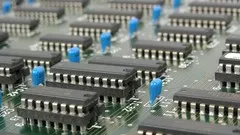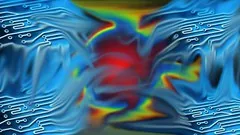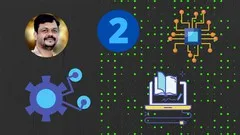
Digital Computer Electronic Engineering Circuit Simulations 
Discover the secrets behind digital computer electronic engineering circuit simulations in this comprehensive course. Gain a solid foundation in digital electronic systems and learn how electronic devices and subsystems work in a digital computer and similar machines. Dive into combination and sequential logic circuits, number systems, Boolean algebra, logic families, and more. Master the art of constructing, analyzing, verifying, and troubleshooting digital circuits using the latest techniques and procedures. By the end of this course, you'll be equipped to test related equipment and become a pro in the world of digital circuitry. Don't miss out on this opportunity to enhance your skills and knowledge in the field. Enroll now! ▼
ADVERTISEMENT
Course Feature
![]() Cost:
Cost:
Paid
![]() Provider:
Provider:
Udemy
![]() Certificate:
Certificate:
Paid Certification
![]() Language:
Language:
English
![]() Start Date:
Start Date:
2020-09-21
Course Overview
❗The content presented here is sourced directly from Udemy platform. For comprehensive course details, including enrollment information, simply click on the 'Go to class' link on our website.
Updated in [September 27th, 2023]
What does this course tell?
(Please note that the following overview content is from the original platform)This course provides a solid foundation of digital electronic systems How the electronic devices and subsystems work in a digital computer and similar machines The course covers combination and sequential logic circuits Topic study will include number systems Boolean algebra logic families medium scale integration (MSI) and large scale integration (LSI) circuits analog to digital (AD) and digital to analog (DA) conversion and more related topics Upon completion students will be able to construct analyze verify and troubleshoot digital circuits using appropriate techniques and procedures and test related equipment
We considered the value of this course from many aspects, and finally summarized it for you from two aspects: skills and knowledge, and the people who benefit from it:
(Please note that our content is optimized through artificial intelligence tools and carefully reviewed by our editorial staff.)
What skills and knowledge will you acquire during this course?
During this course, students will acquire the following skills and knowledge:
1. Understanding of digital electronic systems: Students will gain a solid foundation in the functioning of electronic devices and subsystems in digital computers and similar machines.
2. Knowledge of combination and sequential logic circuits: The course will cover the principles and design of combination and sequential logic circuits, which are essential components of digital systems.
3. Familiarity with number systems: Students will study different number systems used in digital electronics, such as binary, decimal, and hexadecimal, and learn how to perform conversions between them.
4. Proficiency in Boolean algebra: The course will introduce students to Boolean algebra, which is used to analyze and design digital circuits. They will learn how to simplify Boolean expressions and implement logic functions using logic gates.
5. Understanding of logic families: Students will explore different logic families, such as TTL (Transistor-Transistor Logic) and CMOS (Complementary Metal-Oxide-Semiconductor), and understand their characteristics, advantages, and limitations.
6. Knowledge of medium scale integration (MSI) and large scale integration (LSI) circuits: Students will learn about MSI and LSI circuits, which integrate multiple logic gates or functional blocks into a single chip, and understand their applications and design considerations.
7. Ability to perform analog to digital (AD) and digital to analog (DA) conversion: Students will gain the skills to convert analog signals to digital form and vice versa, which is crucial in digital systems interfacing with the analog world.
8. Construction, analysis, verification, and troubleshooting of digital circuits: Upon completion of the course, students will be able to construct digital circuits using appropriate techniques and procedures. They will also learn how to analyze, verify, and troubleshoot these circuits using various tools and methods.
9. Testing of related equipment: Students will acquire the knowledge and skills to test and evaluate the performance of equipment related to digital circuits, ensuring proper functionality and reliability.
Who will benefit from this course?
This course will benefit individuals interested in or pursuing a career in digital computer electronic engineering. It is particularly relevant for:
1. Digital Electronic Engineers: This course provides a solid foundation in digital electronic systems, helping engineers understand how electronic devices and subsystems work in a digital computer and similar machines. It covers topics such as combination and sequential logic circuits, number systems, Boolean algebra, logic families, MSI and LSI circuits, and AD/DA conversion. Digital electronic engineers will benefit from gaining a comprehensive understanding of these concepts and techniques, enabling them to construct, analyze, verify, and troubleshoot digital circuits effectively.
2. Computer Hardware Engineers: As this course focuses on the functioning of electronic devices and subsystems in digital computers, computer hardware engineers will find it highly beneficial. It provides insights into the inner workings of digital circuits, allowing engineers to design and optimize computer hardware components.
3. Electrical Engineers: Electrical engineers interested in specializing in digital electronics will find this course valuable. It covers essential topics such as logic circuits, number systems, and AD/DA conversion, providing a strong foundation in digital electronic systems. This knowledge can be applied to various electrical engineering projects and industries.
4. Electronics Technicians: This course equips electronics technicians with the necessary skills to construct, analyze, verify, and troubleshoot digital circuits. It covers appropriate techniques and procedures for testing related equipment, making it highly relevant for technicians working with digital electronic systems.
5. Students pursuing a degree in Electrical or Computer Engineering: This course serves as a fundamental course for students studying electrical or computer engineering. It provides a comprehensive understanding of digital electronic systems, enabling students to apply this knowledge in their future coursework and careers.
Course Syllabus
Introduction
Digital Logic Gates Combinations
Intermediate Combination Logic
Course Provider

Provider Udemy's Stats at AZClass
Discussion and Reviews
0.0 (Based on 0 reviews)
Explore Similar Online Courses

Crystal Reports 2008 Introduction

Soil erosion spatial modeling with RUSLE in ArcGIS software

Python for Informatics: Exploring Information

Social Network Analysis

Introduction to Systematic Review and Meta-Analysis

The Analytics Edge

DCO042 - Python For Informatics

Causal Diagrams: Draw Your Assumptions Before Your Conclusions

Whole genome sequencing of bacterial genomes - tools and applications

The Ultimate : Digital System Design ( Module - 1)

CMOS Digital Integrated Circuit Design


Start your review of Digital Computer Electronic Engineering Circuit Simulations